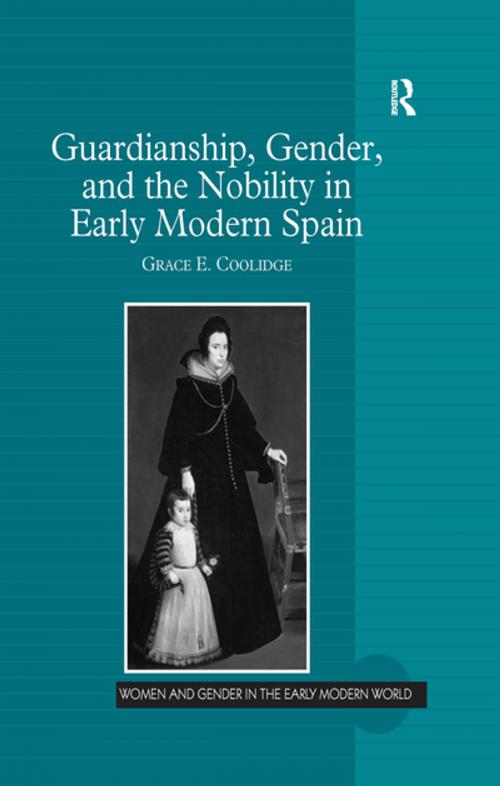Guardianship, Gender, and the Nobility in Early Modern Spain
Nonfiction, History, Modern, 17th Century| Author: | Grace E. Coolidge | ISBN: | 9781351931991 |
| Publisher: | Taylor and Francis | Publication: | December 5, 2016 |
| Imprint: | Routledge | Language: | English |
| Author: | Grace E. Coolidge |
| ISBN: | 9781351931991 |
| Publisher: | Taylor and Francis |
| Publication: | December 5, 2016 |
| Imprint: | Routledge |
| Language: | English |
Contrary to early modern patriarchal assumptions, this study argues that rather trying to impose obedience or enclosure on women of their own rank and status, noblemen in early modern Spain depended on the active collaboration of noblewomen to maintain and expand their authority, wealth, and influence. While the image of virtuous, secluded, silent, and chaste women did bolster male authority in general and help to assure individual noblemen that their children were their own, the presence of active, vocal, and political women helped these same men move up the social ladder, guard their property and wealth, gain political influence, win legal battles, and protect their minor heirs. Drawing on a variety of documents-guardianships, wills, dowry and marriage contracts, lawsuits, genealogies, and a few letters-from the family archives of the nine noble families housed in the Osuna and FrÃas collections in Toledo, Guardianship, Gender and the Nobility in Early Modern Spain explores the lives and roles of female guardians. Grace Coolidge examines in detail the legal status of these women, their role within their families, and their responsibilities for the children and property in their care. To Spanish noblemen, Coolidge argues, the preservation of family, power, and lineage was more important than the prescriptive gender roles of their time, and faced with the emergency generated by the premature death of the male title holder, they consistently turned to the adult women in their families for help. Their need for support and for allies against their own mortality meant, in turn, that they expected and trained their female relatives to take an active part in the economic and political affairs of the family.
Contrary to early modern patriarchal assumptions, this study argues that rather trying to impose obedience or enclosure on women of their own rank and status, noblemen in early modern Spain depended on the active collaboration of noblewomen to maintain and expand their authority, wealth, and influence. While the image of virtuous, secluded, silent, and chaste women did bolster male authority in general and help to assure individual noblemen that their children were their own, the presence of active, vocal, and political women helped these same men move up the social ladder, guard their property and wealth, gain political influence, win legal battles, and protect their minor heirs. Drawing on a variety of documents-guardianships, wills, dowry and marriage contracts, lawsuits, genealogies, and a few letters-from the family archives of the nine noble families housed in the Osuna and FrÃas collections in Toledo, Guardianship, Gender and the Nobility in Early Modern Spain explores the lives and roles of female guardians. Grace Coolidge examines in detail the legal status of these women, their role within their families, and their responsibilities for the children and property in their care. To Spanish noblemen, Coolidge argues, the preservation of family, power, and lineage was more important than the prescriptive gender roles of their time, and faced with the emergency generated by the premature death of the male title holder, they consistently turned to the adult women in their families for help. Their need for support and for allies against their own mortality meant, in turn, that they expected and trained their female relatives to take an active part in the economic and political affairs of the family.















